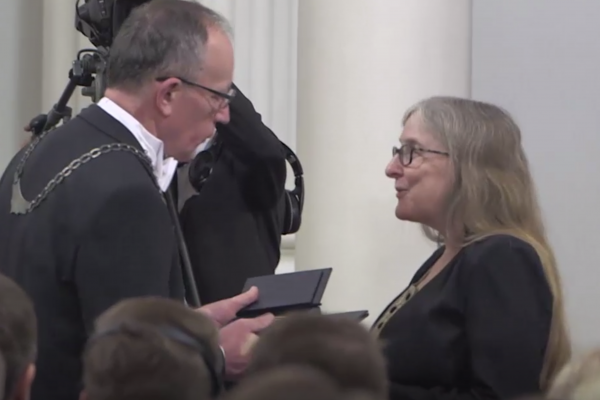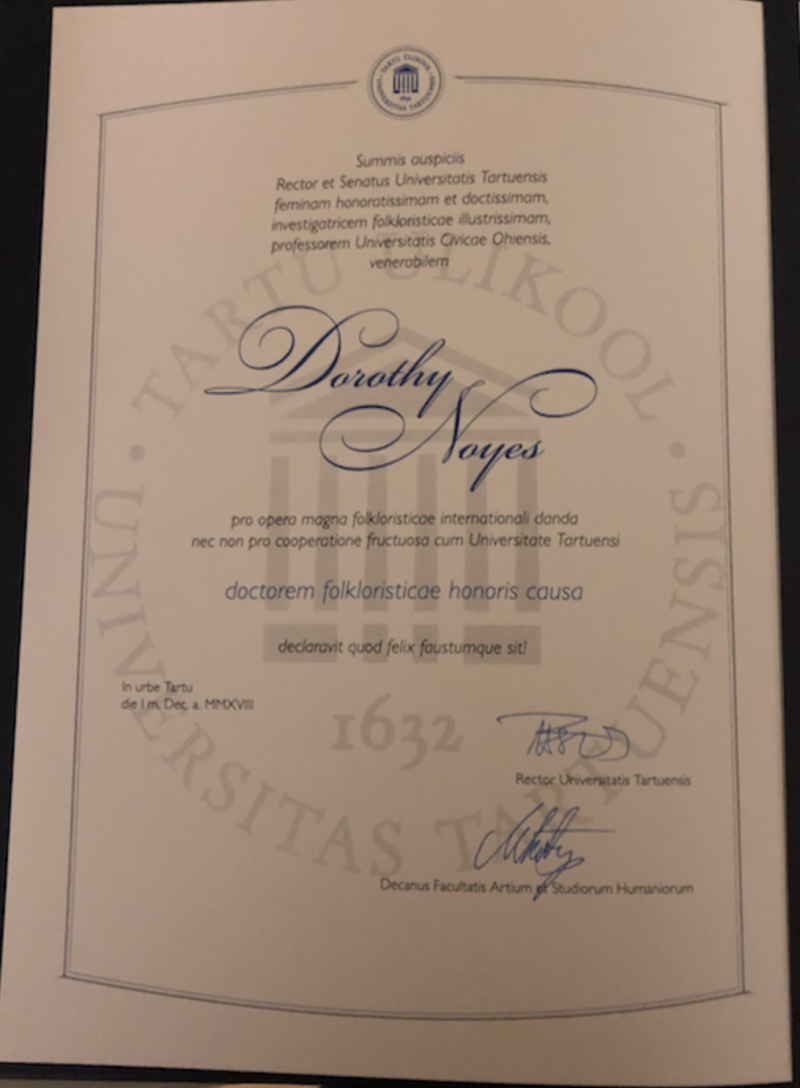Dr. Dorothy Noyes awarded an Honorary Doctorate in Folkloristics from the University of Tartu

Dorothy Noyes, Professor in the Departments of English and Comparative Studies and former Director of the Center for Folklore Studies, was awarded an Honorary Doctorate in Folkloristics at the 99th Anniversary Celebration of the University of Tartu in Estonia on December 1, 2018. Founded in 1632 and refounded in 1919 as Estonia’s national university, the University of Tartu ranks in the top 1.2% worldwide and third overall in the post-Soviet countries, according to the QS World University Rankings.
Currently serving as the President of the American Folklore Society, Noyes was recognized for contributions to international folkloristics and for fruitful collaborations with Tartu’s Department of Estonian and Comparative Folklore. In addition to many teaching and research interchanges, three of the Tartu department’s junior faculty members have spent time at Ohio State: Elo-Hanna Seljamaa earned her PhD from the Department of Comparative Studies in 2012; Anastasiya Astapova and Margaret Lyngdoh each spent their dissertation year as a visiting scholar at the Center for Folklore Studies. The two folklore programs are working towards further collaborations in their shared specialties, including political folklore and the oral traditions of highland Asia.

